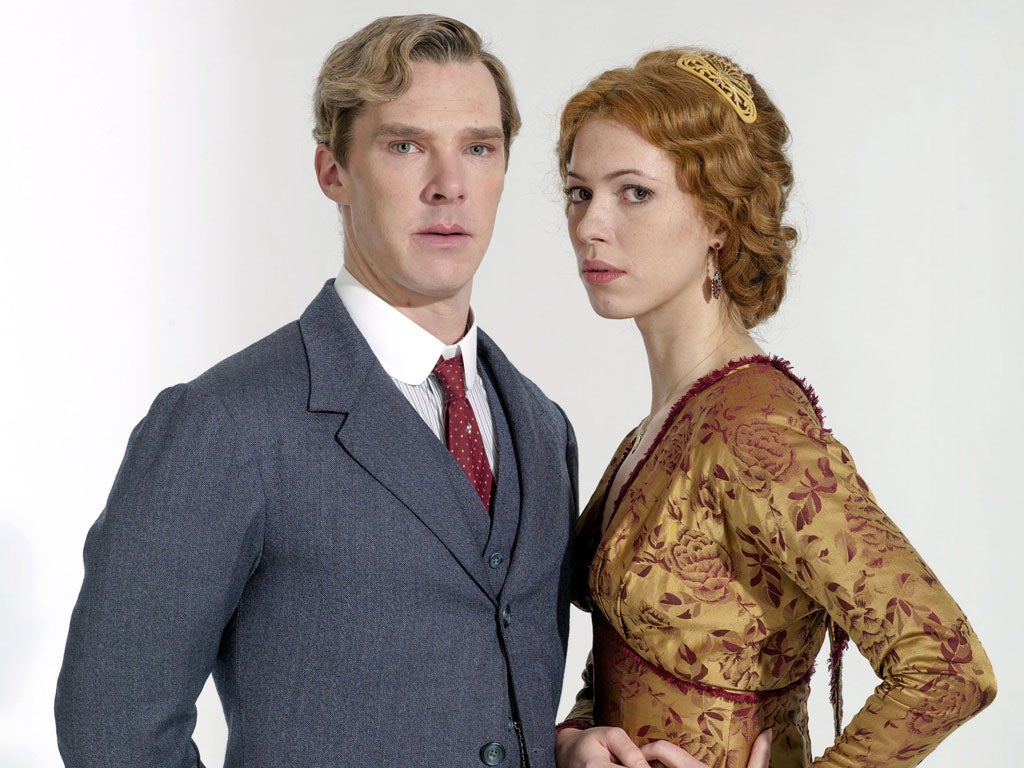As Benedict Cumberbatch continued to extend his repertoire of facial expressions – dignified, concerned, stoical and so on – in BBC2's much-discussed adaptation of Parade's End, an anguished little debate has kicked into gear about the idea, and the implications, of the "gentleman". According to one columnist, our collective fondness for stiff-upper-lipped patrician types going briskly about their duty is misplaced nostalgia, evokes a world and a set of attitudes that probably never were, and is of no account when set against the "social democratic" values peddled by that great modern sociological tableau, Danny Boyle's Olympics opening ceremony.
The "gentleman" has been getting a bad press for upwards of 70 years. Simon Raven's essay in mock sociology The English Gentleman (1961) saw him as a wholly anachronistic figure, vainly trying to maintain a hold on civilised values while sniped at by egalitarian left and meritocratic right for having created the post-war slough of despond through which he laboured. It is certainly true that a whole heap of the early 20th century's problems have some kind of link to "gentlemanly" attitudes. The gentleman, after all, was largely responsible for 1930s appeasement, mostly by discerning in continental dictators some of the attributes he claimed for himself. Hence the spectacle of Neville Chamberlain referring to "that great gentleman", his opposite number in the Berlin Chancellory.
Add to this the archaic social codes of the inter-war era and one can see exactly why Evelyn Waugh's chum Brian Howard, when designing one of his inflammatory party invites, should divide the sheet into "J'accuse" and "J'adore", put "ladies and gentlemen" in the first column and "men and women" in the second. On the other hand, when people publicly regret the passing of the "gentleman" these days, what they are usually lamenting is not the demise of patrician values, the rich man in his castle and the poor man at his gate, and a society in which, as one of my great aunts used to assert, everyone "knew their place", but the idea of courtesy and live-and-let-live.
Looking round – say – the average Premiership football ground on a Saturday afternoon, one might wish that there were rather more gentlemen around to dazzle us all with their tolerance, civility and sense of fair play – all those qualities that, like Ford Madox Ford's Tietjens, sometimes seem to have gone the way of the cloche hat and jars of hundreds and thousands.
Sir Malcolm Bradbury, one of the great presidential forces in recent English literature, would have been 80 this year. To celebrate his achievements, all six of his novels have been reissued in paperback.
The book of Bradbury's which posterity generally seizes upon with a whoop of delighted recognition is The History Man (1975), but re-reading To the Hermitage (2000), published a few months before his death, I was struck by its extraordinarily prophetic note.
Set in 1993, in the days when the internet was but a faint gleam in the cyber-technician's eye, the novel features a semi-academic jaunt to Moscow known – in honour of the celebrated Enlightenment philosopher – as "the Diderot Project". The gathering's aim, as one of the non-English participants brokenly puts it, is to "put person at the centre of the universe" at a time when knowledge seems to be soaring beyond the grasp of the individual intellect.
Simultaneously a comic picaresque, and a send-up of every academic fad known to the late 20th century, To the Hermitage is also, without ever quite advertising the weightiness of its theme, a defence of humanism.
And why should humanism need defending, in a me-generation age where "choice" is apparently a universal right and fais ce que voudras a kind of spiritual sweat-shirt slogan? Curiously enough, the signature mark of the technological revolution is its hostility to individual human interests, its contempt for non-conformity, its spurning of nuance, and its suborning of practically every genuinely authentic act to the corporate protocols that direct it.
A small but decisive example of the tendency came in last week's news that the actor Bruce Willis is reportedly suing iTunes over his apparent inability to bequeath to his children the music downloaded on to his own iPod.
The book I most enjoyed reading last week was An Almost English Life by the literary journalist Miriam Gross. Drawing on several decades spent working in what George Gissing used to call the valley of the shadow of books, Ms Gross has some arresting memories to share – including the moment in 1968 when, with everyone else out of the office, a voice announcing itself as "Wystan" rang up The Observer to say that it had just written a poem about the Soviet tanks arriving in Prague – but some of her sharpest comments are reserved for the chauvinist attitudes which young female secretaries had to put up with from middle-aged men.
On one occasion her boss, Terry Kilmartin, introduced her to the Labour politician Anthony Crosland. This great gentleman didn't reply but merely looked her up and down and remarked (to Kilmartin) "Is this your new au pair?"
Or there was the time when The Observer's chief reviewer, coming across her at her desk, produced a pencil and prodded her breasts with it. The identity of this playful old sport? Why Philip Toynbee, whose daughter Polly continues to ornament the trade half a century later.


Join our commenting forum
Join thought-provoking conversations, follow other Independent readers and see their replies